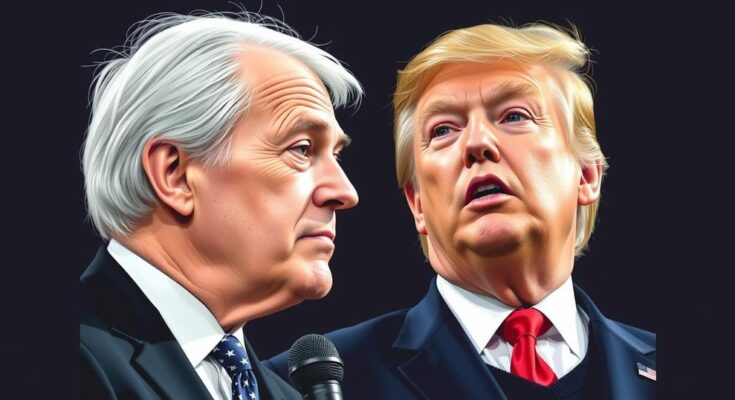President Biden seeks to ban oil drilling to cement his legacy on climate action before Trump takes office, who may reverse many climate initiatives. Biden has supported Ukraine amidst Russian aggression, while Trump is expected to reshape this support. Biden’s approach to Israel exemplifies his commitment, yet Trump may not prioritize humanitarian concerns. The evolving dynamics promise to challenge traditional foreign and domestic policies under imminent leadership transitions.
Outgoing President Joe Biden is attempting to establish a lasting environmental legacy by seeking to ban oil drilling in the Atlantic, Pacific, and Gulf of Mexico, just weeks before Donald Trump assumes the presidency. This measure aligns with securing net-zero carbon emissions by 2050, a crucial move in light of the United States being the largest emitter of greenhouse gases. Trump, who denies the existence of climate change, will not have the legal power to reverse Biden’s ban, raising concerns about potential U.S. isolation in climate initiatives.
In terms of international relations, Biden’s support for Ukraine amid Russian aggression contrasts sharply with Trump’s anticipated approach, which intends to recalibrate U.S. aid. Although Trump has a personal rapport with Russian President Vladimir Putin, it remains uncertain whether he will employ this connection to bring about a resolution to the ongoing conflict. Additionally, Trump’s vision for NATO encourages European allies to increase their defense spending, a challenging undertaking for many member countries.
On matters related to Israel and the ongoing Gaza crisis, Biden has maintained military aid while pressuring Israeli leadership for a ceasefire, though ultimately, he has not succeeded in stopping civilian casualties. This commitment faces further uncertainty under Trump, who is unlikely to exert the same pressure or push for humanitarian considerations.
Furthermore, Trump’s approach to global conflicts, including those in the Middle East and Taiwan, will reflect his narrow focus on trade tariffs rather than comprehensive diplomatic strategies. Facing a Republican-controlled Congress, he will encounter challenges in implementing his policies, given their complexity and the need for bipartisan cooperation.
In summary, the transition from Biden’s administration to Trump’s may alter both domestic climate policy and international relations, with differing approaches to significant global issues. The contrasting visions between the two leaders will undoubtedly shape America’s trajectory on environmental, military, and diplomatic fronts.
The transition from Joe Biden to Donald Trump represents a significant pivot in U.S. policy, particularly regarding climate change and foreign relations. Biden’s administration has prioritized climate action, attempting to mitigate the U.S. emissions footprint through regulatory measures like oil drilling bans. This is juxtaposed with Trump’s views, which dismiss climate change as a critical issue. Additionally, the war in Ukraine and U.S. support for Israel highlight the geopolitical implications of the transition, revealing different strategic priorities between the two leaders. Trump’s pragmatism, coupled with a Republican majority in Congress, will challenge the coherence of his policies and their implementation in complex international landscapes.
The imminent transition of power from President Biden to President Trump signals profound shifts in U.S. domestic and foreign policy. Biden’s efforts to combat climate change face potential rollback under Trump’s administration, compounded by differing stances on international conflicts. The Republican majority may further complicate Trump’s ability to enact simplistic solutions to intricate policy dilemmas. Ultimately, the effectiveness of both leaders’ approaches will significantly influence America’s role on the global stage in addressing climate change, military alliances, and diplomatic relations.
Original Source: www.gulftoday.ae




